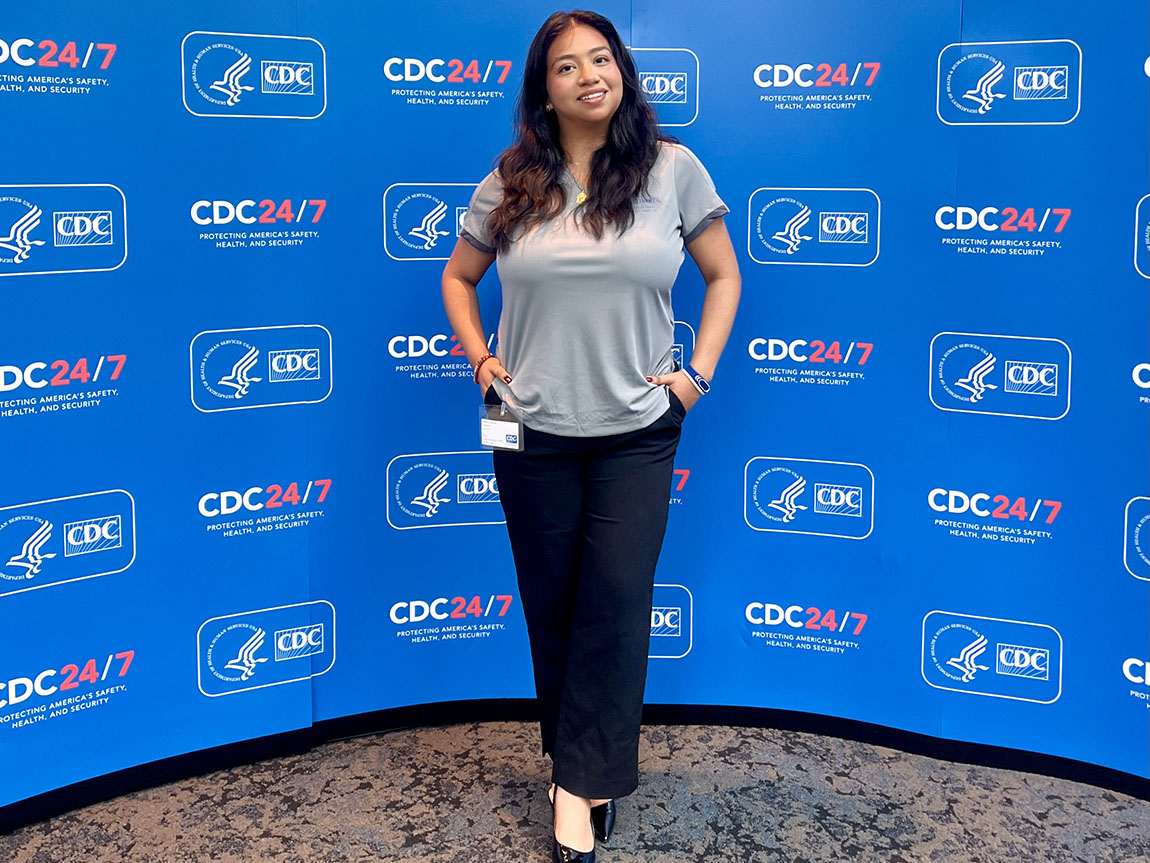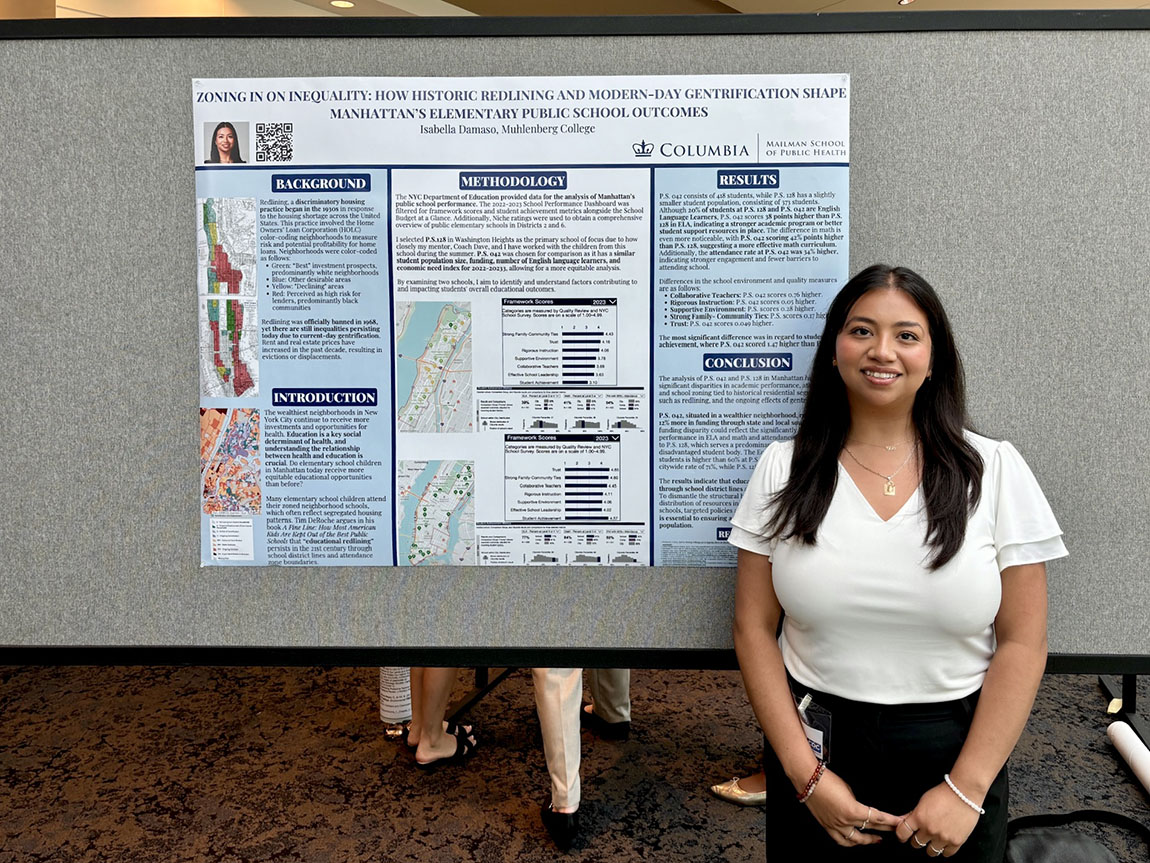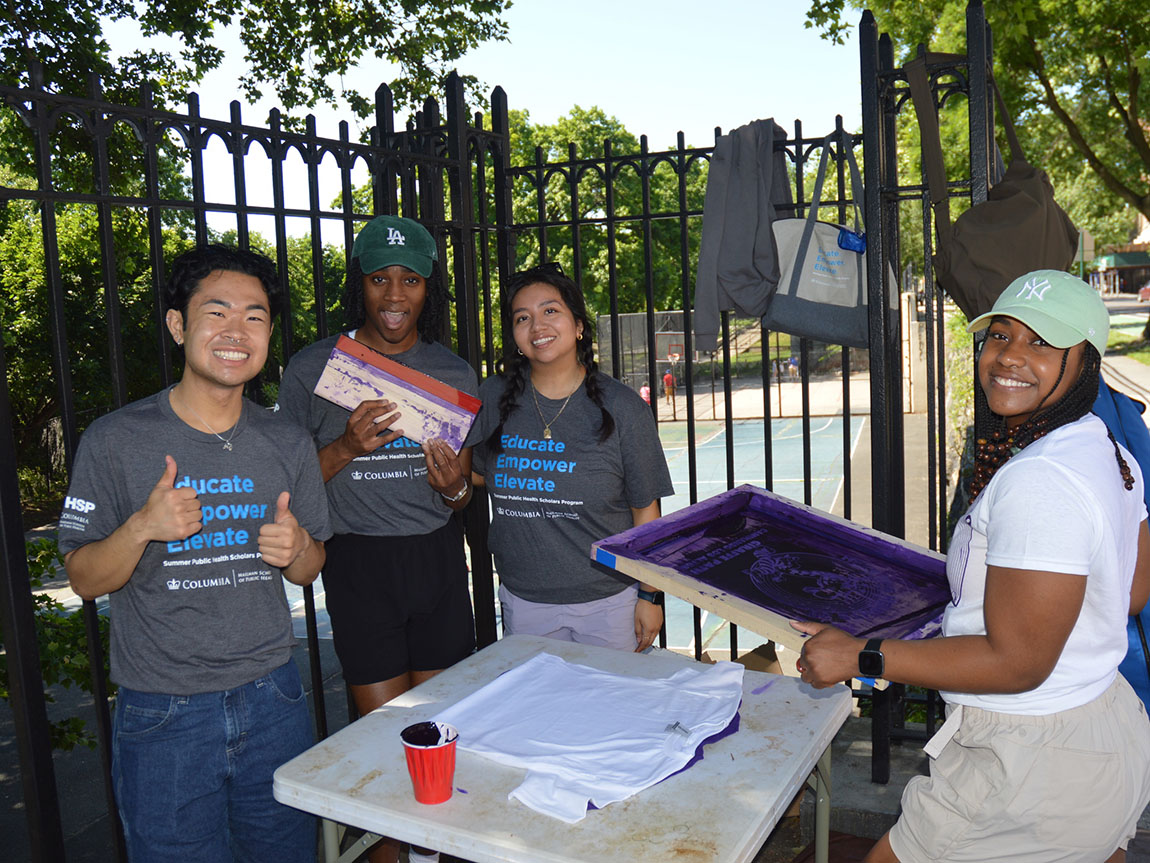Q&A: Rising Junior Researches Educational Equity in Manhattan
Public health major Isabella Damaso ’26 presented her findings at the Centers for Disease Control & Prevention in Atlanta.By: Meghan Kita Wednesday, August 21, 2024 01:39 PM
 Isabella Damaso ’26
Isabella Damaso ’26This summer, Isabella Damaso ’26, a public health major, participated in the Summer Public Health Scholars Program at Columbia University, a part of the Lewis Ferguson Partners program.
Why were you interested in this program?
Last year, I enrolled in my first public health class and immediately fell in love with the public health field. As a result, I focused my efforts on securing an internship within the public health sector, focusing on opportunities that work directly with students to establish a foundation in public health research and careers.
“My time at Muhlenberg has thoroughly equipped me for the Summer Public Health Scholars Program, thanks to Muhlenberg’s interdisciplinary approach. Engaging with subjects including sociology, statistics and psychology has strengthened my grasp of public health fundamentals and deepened my awareness of how social determinants impact health outcomes.”
—Isabella Damaso ’26
What did you do as part of the program?
After completing five courses (Health Disparities & Cultural Competence, Introduction to Biostatistics, Introduction to Epidemiology, Introduction to Public Health, and Introduction to Health Policy), I collaborated with Coach Dave, the founder and director of Uptown Dreamers, a Title XI basketball coach in Washington Heights, to enhance the physical health, leadership skills and academic proficiency of elementary school children through school and community engagement. Working closely with the children of NYC Public School P.S. 128 in Washington Heights, I found inspiration for my summer research.
How did you land on your research topic?
I observed that in New York City, the wealthiest neighborhoods receive considerably more investments and health resources. As education plays a crucial role in determining one's health, I decided to focus my summer research on examining whether elementary school children now have more equal educational opportunities than before. By analyzing student performance and school attendance zone boundaries using data from the NYC Department of Education, I aimed to evaluate the present status of educational equity in Manhattan. Upon finalizing my research, I presented my findings at the 2024 CDC John R. Lewis Public Health Scholars showcase hosted at the Centers for Disease Control & Prevention in Atlanta.
What did you discover through your research?
Through my research, I discovered that educational disparities are still prevalent among elementary school children in Manhattan. My findings indicate that targeted investments are needed to achieve equitable distribution of resources in Manhattan’s public elementary schools. Historically disinvested neighborhoods are now some of the most sought-after due to increased investments, demonstrating the potential to transform education and health. We must prioritize investing in underserved areas to ensure that every child, regardless of zip code, has the opportunity to succeed.

How did your Muhlenberg experiences prepare you for this program?
My time at Muhlenberg has thoroughly equipped me for the Summer Public Health Scholars Program, thanks to Muhlenberg’s interdisciplinary approach. Engaging with subjects including sociology, statistics and psychology has strengthened my grasp of public health fundamentals and deepened my awareness of how social determinants impact health outcomes.
Outside of the classroom, my role as co-director of the M.U.L.E. Cabinet and member of Alpha Chi Omega have significantly contributed to my leadership and communication skills, which are crucial for engaging in the diverse public health field of New York City.
These experiences have not only prepared me for my summer internship but also reinforced my commitment to pursuing a career in public health. I aim to address the root causes of health inequity while advocating for vulnerable populations whose voices may not be heard.

